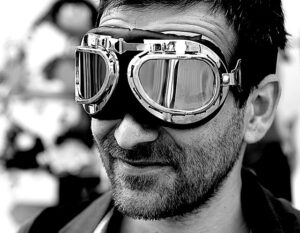Macular degeneration might sound like a one-way street to vision loss, but here’s the good news: while there’s no outright cure, you can take steps to slow it down. Science has come a long way in understanding what helps preserve eyesight, and small changes can make a big difference. So, let’s dive into what actually works when it comes to protecting your vision.
The Role of Diet: You Are What You Eat (Especially Your Eyes!)
It turns out that your diet doesn’t just affect your waistline—it affects your eyes, too. Research has shown that people who eat a diet rich in leafy greens, colorful fruits, and omega-3 fatty acids tend to have healthier eyes. Foods like spinach, kale, salmon, and oranges contain antioxidants and essential nutrients that support macular health.
The big players? Lutein and zeaxanthin, two powerful antioxidants found in leafy greens, help filter harmful blue light and protect the retina. Zinc, found in foods like beef and chickpeas, also plays a role in slowing the progression of macular degeneration. And let’s not forget vitamin C (citrus fruits, bell peppers) and vitamin E (nuts, seeds), both of which help fight oxidative stress.
Quit Smoking: Your Eyes Will Thank You
If you’re a smoker, you’ve probably heard a million reasons to quit—but here’s one more: smoking doubles your risk of developing macular degeneration. Tobacco smoke is loaded with harmful chemicals that damage blood vessels, including those in your eyes. The sooner you quit, the better your chances of slowing down vision loss.
Sun Protection: More Than Just a Fashion Statement
Sunglasses aren’t just for looking cool. Exposure to UV rays over time can damage the retina and contribute to macular degeneration. A good pair of sunglasses with 100% UV protection acts like sunscreen for your eyes. And don’t forget a hat—extra shade never hurts!
The AREDS2 Formula: Vitamins That Matter
For those with moderate to advanced macular degeneration, doctors often recommend the AREDS2 supplement. This specific mix of vitamins and minerals, based on major clinical studies, includes lutein, zeaxanthin, vitamin C, vitamin E, zinc, and copper. While it’s not a cure, it has been shown to slow down the progression of the disease in some people.
Treatment for Wet Macular Degeneration
If you have the more aggressive wet form of macular degeneration, medical treatments are available. The most common approach involves anti-VEGF injections—medications that help prevent abnormal blood vessel growth in the retina. While the idea of eye injections might make you cringe, they’ve been game-changers in preserving vision for many people.
The Power of Regular Eye Exams
Even if your vision seems fine, regular eye exams are crucial—especially as you age. Eye doctors can catch macular degeneration in its early stages, often before you notice symptoms. The earlier it’s detected, the better your chances of slowing it down with lifestyle changes and treatments.
Final Thoughts
Macular degeneration doesn’t have to mean an inevitable loss of independence. By making smart choices—eating well, protecting your eyes from UV rays, quitting smoking, and staying on top of eye exams—you can give your vision the best possible chance. Science may not have a cure yet, but you have more power over your eye health than you might think!








